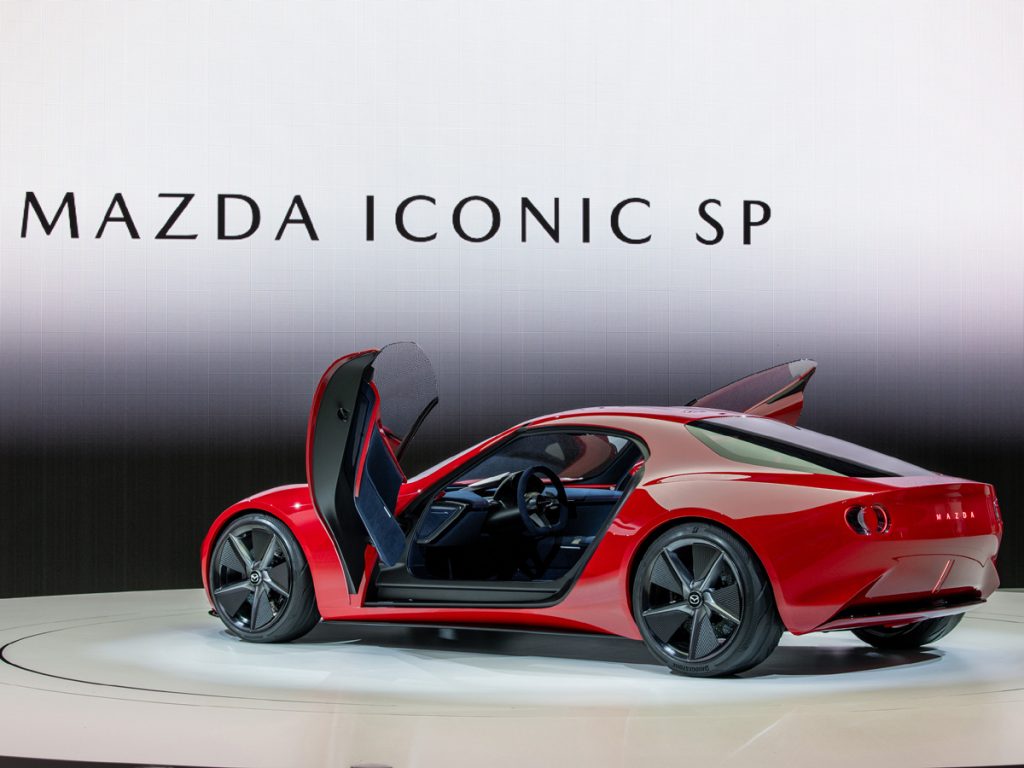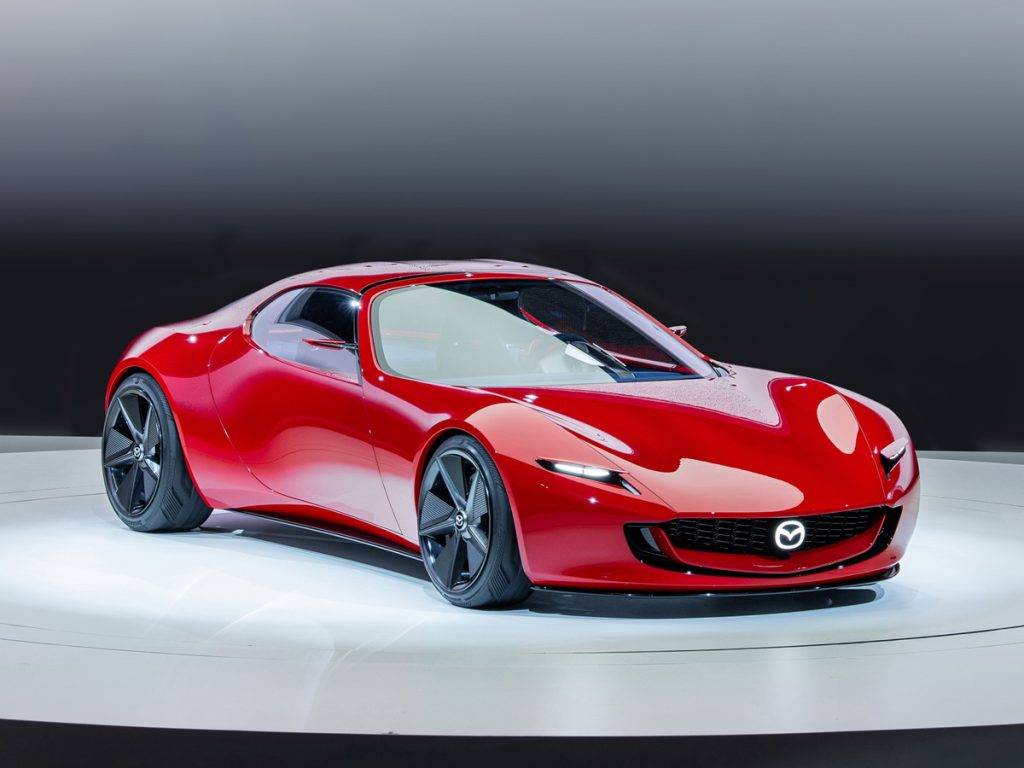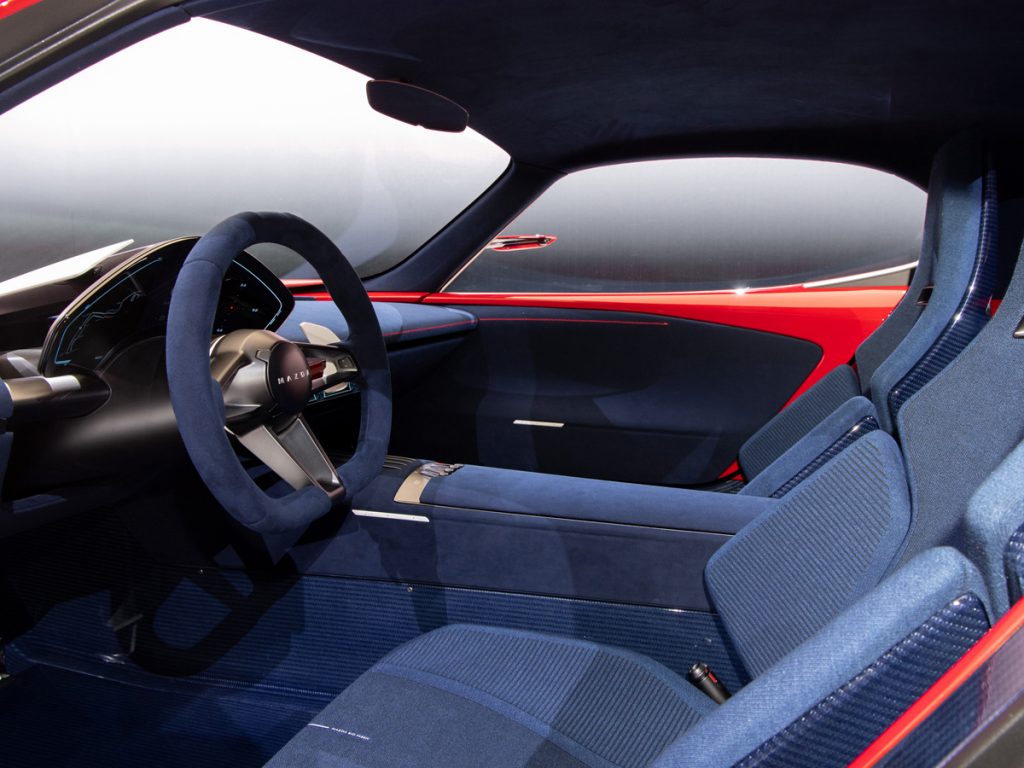At the Japan Mobility Show, Mazda pulled the covers off an all-new rotary-electric sports car concept called the Iconic SP. Visually, the two-door creation, finished in Viola Red, looks absolutely sensational! The sleek styling and a smooth, flowing design give it a very understated yet exciting appeal.

In essence, the Iconic SP is a plug-in hybrid vehicle (PHEV) that uses a unique twin-rotor rotary engine and a battery pack. While the powertrain has been borrowed from the Mazda MX-30 R-EV crossover, there is one significant difference – the crossover uses a single-rotor rotary engine. In this powertrain, the rotary engine works as a generator to charge the 17.8kWh battery on the move and the wheels are propelled electrically only, making the engine more of a range-extender. With a claimed output of 370PS, and tipping the scales at 1,450kg, the Iconic SP, on paper, comes across as significantly quicker than any road-going Mazda so far.

Mazda claims using the compact rotary-electric powertrain in a sports car brings significant packaging benefits as well. For example, in the Iconic SP, the powertrain sits in the middle, which allows for a low centre of gravity, better aerodynamics (low-set hood, etc.), and near 50:50 weight distribution which is great for neutral handling characteristics.
To make a case for the compact sports car in an electrified future, Mazda has also proposed a fairly ‘ideal’ scenario, in which the Iconic SP’s rotary engine would be able to run on “a variety of fuels, including hydrogen”, and adding that “if the battery is charged with electricity derived from renewable energy, it is possible to drive in a virtually carbon-neutral state”.

Mazda’s carbon-neutrality goals are also highlighted in the Iconic SP’s cockpit. The cabin is draped in a blend of suede cloth and Mazda’s plant-based bio-fabric material.
Clearly, with the Iconic SP, Mazda has shown that it aims to continue building lightweight, driver-focused vehicles in the electric age as well. Of course, to this end, the company also announced a huge £8.7 billion electrification initiative in March 2023, under which it will roll out new hybrid and BEV models by 2027, before aiming for a fully all-electric line-up from 2028.


